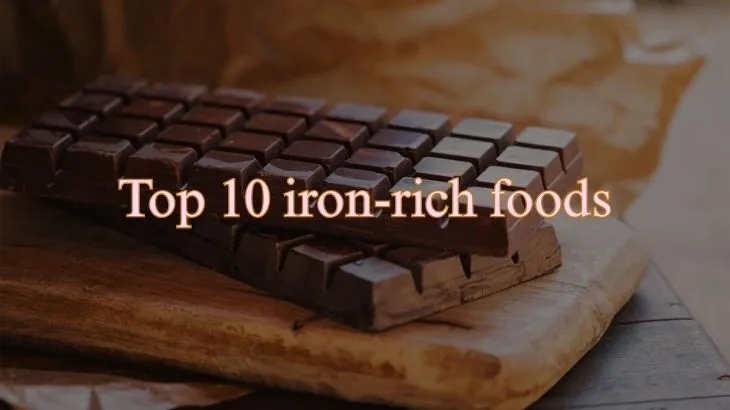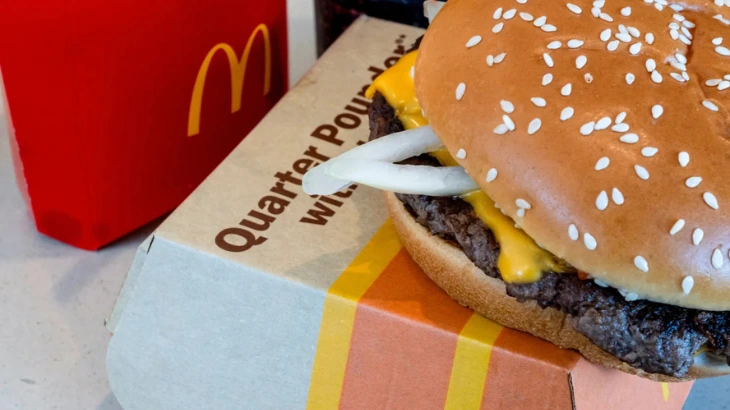Iron is an essential nutrient that plays a key role in producing hemoglobin, the protein in red blood cells that helps transport oxygen throughout your body. If your iron levels are low, you may experience fatigue, weakness, or even anemia. Including iron-rich foods in your diet is important to maintain energy levels and overall health. Here are the top 10 healthy and iron-rich foods that you can easily incorporate into your meals.
1. Spinach
Spinach is one of the best plant-based sources of iron. Just 100 grams of raw spinach contains about 2.7 mg of iron, which is 15% of the daily recommended intake for adults. Spinach also contains vitamin C, which helps your body absorb iron more effectively. Whether eaten in salads, soups, or smoothies, spinach is a versatile and nutritious option.
2. Red Meat
Red meat, especially beef and lamb, is a highly bioavailable source of heme iron (the type of iron that’s easily absorbed by the body). A 3-ounce serving of cooked beef provides about 2.7 mg of iron. Regularly consuming red meat can help maintain healthy iron levels, but it’s best to consume it in moderation to balance fat intake.
3. Lentils
Lentils are a powerhouse for iron and other nutrients like protein and fiber. One cup of cooked lentils contains 6.6 mg of iron, which covers over 37% of the recommended daily intake. Lentils are also affordable and easy to include in soups, stews, or salads, making them a great option for plant-based diets.
4. Pumpkin Seeds
Pumpkin seeds are an excellent snack packed with nutrients, including iron. A 1-ounce serving of pumpkin seeds provides about 2.5 mg of iron. They’re also rich in magnesium, zinc, and antioxidants. Sprinkle them on salads, yogurt, or enjoy them on their own for a healthy, iron-boosting snack.
5. Quinoa
Quinoa is a gluten-free grain that is not only high in iron but also a complete protein, containing all nine essential amino acids. One cup of cooked quinoa offers about 2.8 mg of iron. It’s a perfect base for salads or as a side dish, offering a nutrient-dense alternative to rice or pasta.
6. Shellfish (Oysters, Clams, Mussels)
Shellfish, particularly oysters, clams, and mussels, are rich in heme iron. Just 100 grams of clams can provide an incredible 28 mg of iron, which is over 150% of the daily intake requirement. Shellfish also contain other important nutrients like vitamin B12 and zinc, making them a great addition to your diet.
7. Chickpeas
Chickpeas, also known as garbanzo beans, are another excellent plant-based source of iron. One cup of cooked chickpeas contains about 4.7 mg of iron. They are also high in protein and fiber, promoting satiety and digestive health. Chickpeas can be added to salads, soups, or blended into hummus.
8. Fortified Cereals
Many breakfast cereals are fortified with iron and can provide up to 100% of your daily iron needs in one serving. When choosing cereals, opt for whole grain or low-sugar varieties to get the added benefits of fiber. Pairing them with a source of vitamin C, like orange juice, can also boost iron absorption.
9. Tofu
Tofu is a popular plant-based protein rich in iron, especially for those following a vegetarian or vegan diet. Half a cup of tofu provides about 3.4 mg of iron. It’s incredibly versatile and can be added to stir-fries, soups, or grilled for a healthy, iron-packed meal.
10. Dark Chocolate
Believe it or not, dark chocolate is not only delicious but also a good source of iron. A 1-ounce serving of dark chocolate (70-85% cocoa) contains around 3.4 mg of iron. Dark chocolate is also high in antioxidants, which offer additional health benefits. Indulge in moderation to enjoy a sweet treat while boosting your iron intake.
Tips for Boosting Iron Absorption
- Pair iron-rich foods with vitamin C: Vitamin C helps enhance non-heme iron absorption. Try adding citrus fruits, bell peppers, or tomatoes to your meals.
- Avoid coffee and tea with meals: These beverages contain compounds that can inhibit iron absorption. It’s best to drink them between meals instead.
Incorporating these iron-rich foods into your diet can help prevent iron deficiency and improve overall health. Whether you prefer plant-based sources like lentils and spinach or animal-based options like red meat and shellfish, there are plenty of healthy and delicious ways to meet your daily iron needs. Remember to combine these foods with vitamin C to maximize absorption, and consult with a healthcare professional if you have concerns about your iron levels.




